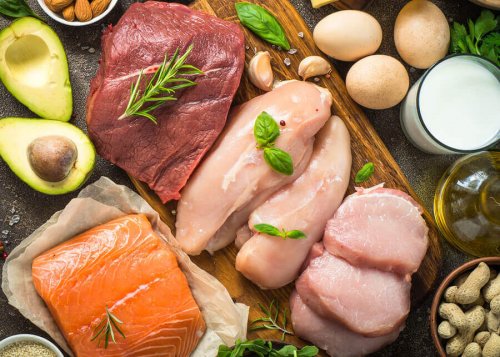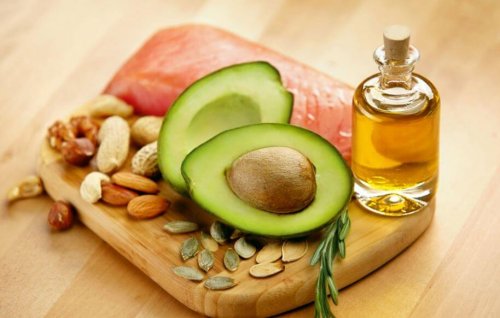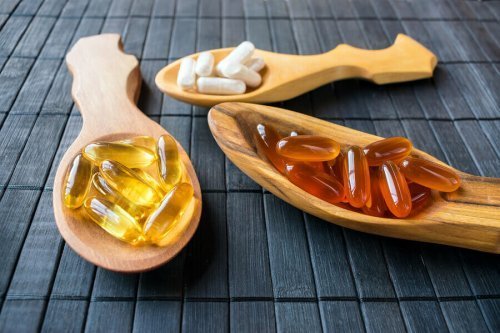Nutrition and Supplements for Beginner Cyclists

The nutrition plans of athletes are as important as the training they complete. If we leave one of these two elements aside, it’ll be impossible to achieve the objectives that we’ve set for ourselves. Moreover, it’s essential to adapt our nutrition to the sport that we practice. In this case, we’ll focus on nutrition for beginner cyclists.
It’s wrong to think that all athletes must eat the same meals. This depends on the intensity of the exercise and the effort they make. In the case of cyclists, the practice requires a certain level of intensity and also demands a fibrous body with strength and endurance in the legs.
Up next, we’ll explain in detail what the nutrition of beginner cyclists should consist of, what foods they should consume, and which ones they should exclude.
Nutrition for beginner cyclists
Proteins: essential for any athlete
Since it can’t be any other way, proteins must be present in the diet of beginner cyclists. They’re a great help to promote recovery, making it faster and more effective. Additionally, they contribute to the formation and development of muscles.
In regard to cyclists, it’s important that they have fibrous and strong legs to pedal for as long as it takes to reach the end of the route.

Fats as a source of energy
For lots of people, fats are the great enemies of healthy eating. However, we must eat them in proper proportions because they’re essential for any type of person, especially athletes.
Consumed in limited amounts, fats are a source of energy that helps beginner cyclists achieve their goals. Nonetheless, you must keep in mind that not all fats are the same. Hence, we should opt for the healthiest ones, otherwise, their effect may be very harmful.

Nutrition for beginner cyclists: a balanced diet
So far we’ve talked about proteins and fats as nutrients to consider. This doesn’t mean that you can eliminate nutrients.
The most appropriate thing to do is to follow a balanced diet where all nutrients are present. You have to make sure that you consume the correct amounts of each and not to excess.
If you combine a balanced diet and the proper practice of this sport, you’ll have a lot of benefits as a result of practicing cycling.
Don’t forget to hydrate
Cycling is a sport that takes place outdoors for long periods of time. This means that you’re exposed to the sun for long periods of time. That’s why cyclists become dehydrated more than other athletes do and this can have serious consequences.
All cyclists must carry a bottle with water or a salt-rich beverage on the bicycle. This way, they can drink during the route, avoid dehydration and ensure their endurance.
It’s important to drink small amounts of water at a time and repeat this action frequently. Drinking too much water at once will cause cyclists to feel heavy and bloated.
Is it necessary to take supplements?
Supplements are increasingly consumed by athletes. These types of products enable athletes to have more endurance and, therefore, reach their goals more easily.
Nevertheless, it’s not good to consume them too much. An excess of supplements can be counterproductive. If we don’t burn them entirely, they turn into fat. As a consequence, beginner cyclists will gain weight and won’t be able to achieve their goals.

For all of these reasons, we should only take food supplements when necessary. Particularly, when you can’t ingest all the nutrients you require through food alone.
In those cases, you should always turn to a professional. This expert will tell you which are the most appropriate supplements, depending on your needs.
By taking supplements properly, you’ll be able to perform better and increase your levels of endurance progressively. That, coupled with a nutrition plan that follows the guidelines we explained, will be the best possible combination. Enjoy practicing your favorite sport while improving your competitiveness!
The nutrition plans of athletes are as important as the training they complete. If we leave one of these two elements aside, it’ll be impossible to achieve the objectives that we’ve set for ourselves. Moreover, it’s essential to adapt our nutrition to the sport that we practice. In this case, we’ll focus on nutrition for beginner cyclists.
It’s wrong to think that all athletes must eat the same meals. This depends on the intensity of the exercise and the effort they make. In the case of cyclists, the practice requires a certain level of intensity and also demands a fibrous body with strength and endurance in the legs.
Up next, we’ll explain in detail what the nutrition of beginner cyclists should consist of, what foods they should consume, and which ones they should exclude.
Nutrition for beginner cyclists
Proteins: essential for any athlete
Since it can’t be any other way, proteins must be present in the diet of beginner cyclists. They’re a great help to promote recovery, making it faster and more effective. Additionally, they contribute to the formation and development of muscles.
In regard to cyclists, it’s important that they have fibrous and strong legs to pedal for as long as it takes to reach the end of the route.

Fats as a source of energy
For lots of people, fats are the great enemies of healthy eating. However, we must eat them in proper proportions because they’re essential for any type of person, especially athletes.
Consumed in limited amounts, fats are a source of energy that helps beginner cyclists achieve their goals. Nonetheless, you must keep in mind that not all fats are the same. Hence, we should opt for the healthiest ones, otherwise, their effect may be very harmful.

Nutrition for beginner cyclists: a balanced diet
So far we’ve talked about proteins and fats as nutrients to consider. This doesn’t mean that you can eliminate nutrients.
The most appropriate thing to do is to follow a balanced diet where all nutrients are present. You have to make sure that you consume the correct amounts of each and not to excess.
If you combine a balanced diet and the proper practice of this sport, you’ll have a lot of benefits as a result of practicing cycling.
Don’t forget to hydrate
Cycling is a sport that takes place outdoors for long periods of time. This means that you’re exposed to the sun for long periods of time. That’s why cyclists become dehydrated more than other athletes do and this can have serious consequences.
All cyclists must carry a bottle with water or a salt-rich beverage on the bicycle. This way, they can drink during the route, avoid dehydration and ensure their endurance.
It’s important to drink small amounts of water at a time and repeat this action frequently. Drinking too much water at once will cause cyclists to feel heavy and bloated.
Is it necessary to take supplements?
Supplements are increasingly consumed by athletes. These types of products enable athletes to have more endurance and, therefore, reach their goals more easily.
Nevertheless, it’s not good to consume them too much. An excess of supplements can be counterproductive. If we don’t burn them entirely, they turn into fat. As a consequence, beginner cyclists will gain weight and won’t be able to achieve their goals.

For all of these reasons, we should only take food supplements when necessary. Particularly, when you can’t ingest all the nutrients you require through food alone.
In those cases, you should always turn to a professional. This expert will tell you which are the most appropriate supplements, depending on your needs.
By taking supplements properly, you’ll be able to perform better and increase your levels of endurance progressively. That, coupled with a nutrition plan that follows the guidelines we explained, will be the best possible combination. Enjoy practicing your favorite sport while improving your competitiveness!
All cited sources were thoroughly reviewed by our team to ensure their quality, reliability, currency, and validity. The bibliography of this article was considered reliable and of academic or scientific accuracy.
- Becerro, J. F. M., & Gomez, R. S. (1997). La alimentación y el ciclo menstrual en las deportistas de élite. Archivos de Medicina Del Deporte.
- Cristóbal Sánchez Muñoz; Mikel Zabala Díaz. 2000. Aspectos básicos de la dieta para ciclismo. Recuperado de: http://www.munideporte.com/imagenes/documentacion/ficheros/20080115184447aspectos_basicos_dieta_ciclismo.pdf
This text is provided for informational purposes only and does not replace consultation with a professional. If in doubt, consult your specialist.








